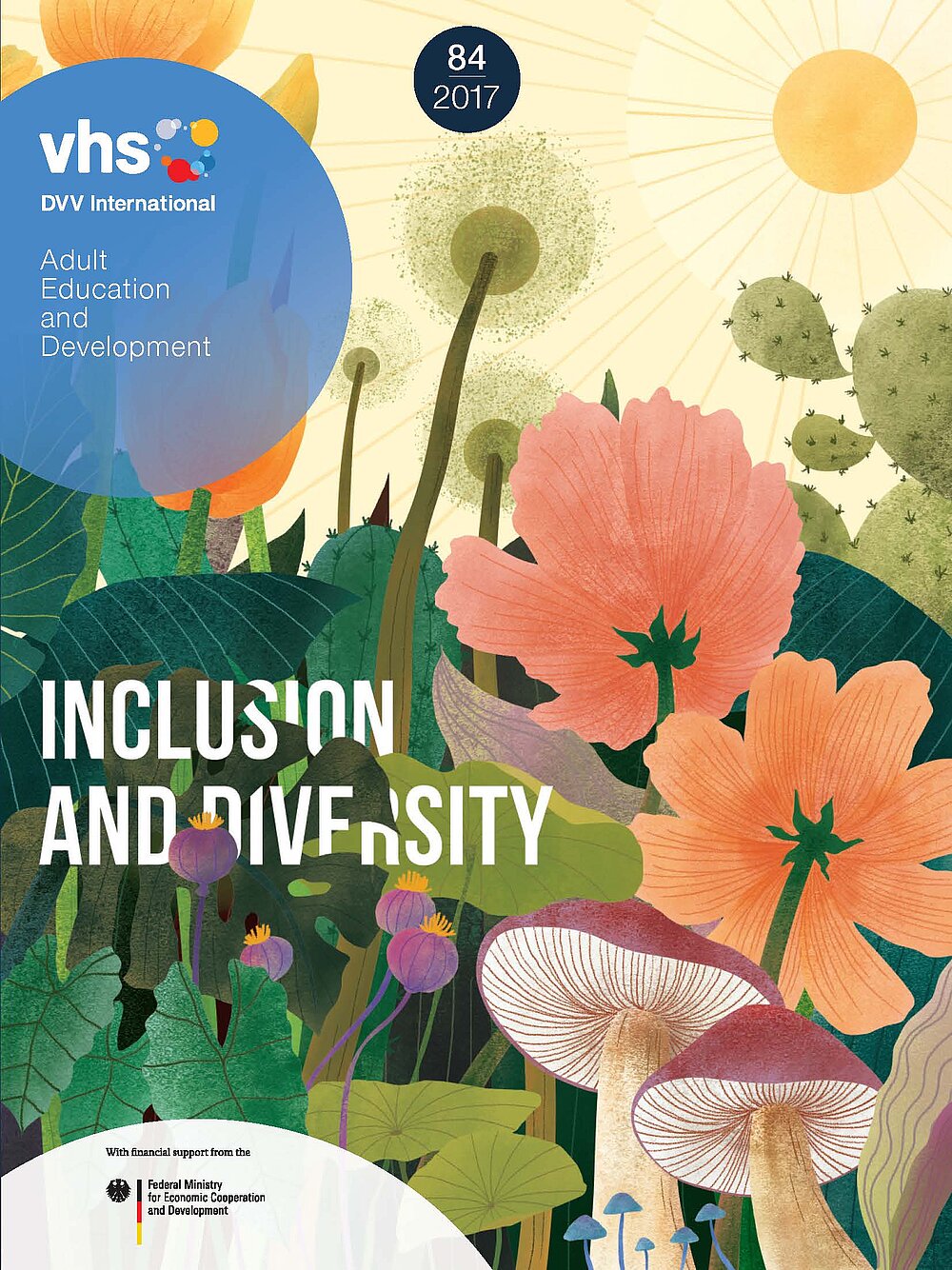In the latest issue of Adult Education and Development (AED), authors from all over the world discuss the many facets of “inclusion and diversity”. They write about their own identity, discuss the changes needed to create inclusive societies and adult education systems, and present concrete “inclusive” methods of adult education.
Inclusion and diversity are two sides of the same coin. Inclusion can only succeed if we recognise our differences – our diversity – and use them constructively. But how can we prevent social exclusion and enable all people to participate in society? What contribution can adult education make? Which learning approaches, programmes and institutions are needed to create an inclusive (adult) education system? And what does “inclusive” teaching actually mean? These are some of the questions raised in this year’s issue of AED.
Experiences and good practices from around the globe
For example, Rima Abboud from Palestine writes about the experiences of the Aswat – Palestinian Gay Women network, and Annette Sprung from the University of Graz discusses to what extent the migration-related diversity in Austria is also reflected in adult education staff. Shermaine Barrett from Jamaica introduces the concept of “reflexivity”, which helps teachers to critically reflect on their own teaching practice and to make their teaching inclusive; and the Peruvian activist Tarcila Rivera Zea reports on her work in the Permanent Forum on Indigenous Affairs at the U.N. In a photoreportage, Mozambican photographer Mário Macilau tells the story of a learning project for people with and without disabilities in a village near Maputo.
The Adult Education and Development journal is a forum for adult educators from all over the world. It has been published since 1973 by DVV International – the Institute for International Cooperation of the German Adult Education Association (Deutscher Volkshochschul-Verband e.V., DVV). It appears once a year in English, French and Spanish. For the current issue, in cooperation with the International Council for Adult Education (ICAE), a virtual seminar (in English) will be held in February 2018. Information and registration at policy@icae.global
The journal can be requested free of charge at info@dvv-international.de. The online edition can be read and/or downloaded at https://www.dvv-international.de/adult-education-and-development/.



